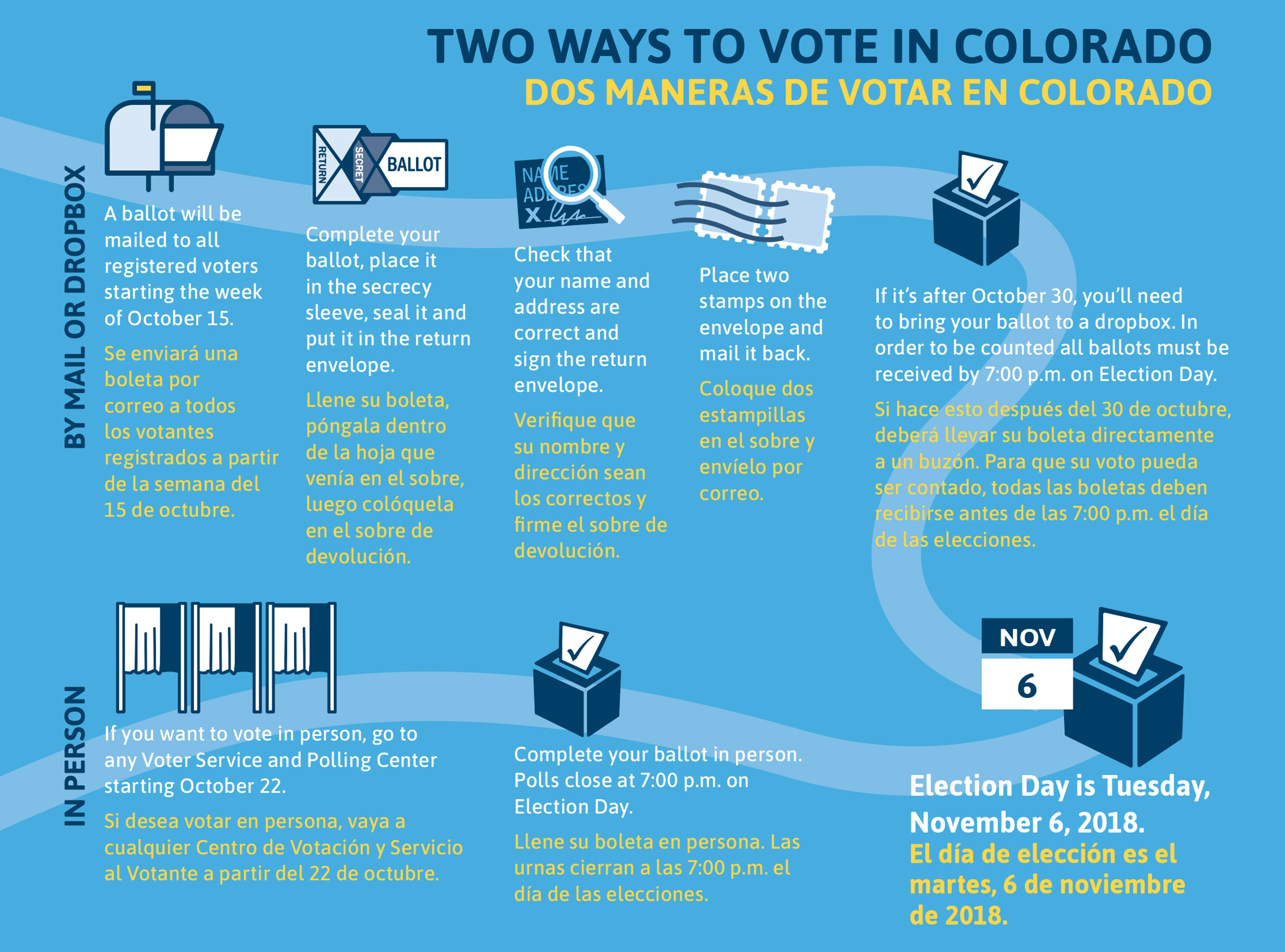Who’s Who in Colorado Politics
Voting is a public way of saying, “Our families count, and together we can make a difference!”
Election Day is Tuesday, November 6, 2018.
You can register to vote any time up to and on Election Day. Ensure that you are registered at your current address by visiting www.govotecolorado.com.
For more information or to find your nearest dropbox or Voter Service and Polling Center, visit www.justvotecolorado.org.
Can I Vote?
To vote, you must be at least 18 and a US citizen. People with a criminal conviction who have served their sentence, including parole, can vote in Colorado.
Regardless of your voting status, you can make a difference!
- Encourage and educate voters.
- Share this voter guide at your church or with your neighbors, friends and family.
- Attend town hall meetings and other events hosted by your legislators to raise the issues that affect your family.
- Testify on proposed bills that affect you and your family.
- Visit the Colorado Capitol in Denver with an advocacy organization that works on issues you care about.
Colorado Statewide Elected Positions
The executive branch carries out laws and creates programs mandated by law.
Governor
Key Responsibilities
- Proposes the state’s annual budget for approval by the legislature.
- Power to sign or veto bills passed by the state legislature. A veto can prevent the bill from becoming law.
- Appoints positions on almost 300 boards and commissions that determine how to enforce laws and how to spend money.
What This Means for You
Proposes budget that determines state funding priorities, including for public schools, healthcare and social services.
Can sign into law or veto bills, including those related to healthcare and programs for families and children.
Attorney General
Key Responsibilities
- Represents the state in legal matters, including filing lawsuits to block or force action.
What This Means for You
Defends or questions the constitutionality of laws enacted by the legislature.
Represents the state in all legal matters in court.
Can sue the federal government over decisions such as restrictions on Title X funding, immigration policies and changes to environmental regulations.
Colorado State Legislative Branch • The legislative branch makes the laws. The Colorado legislative branch is divided into two houses, the Colorado State Senate and the Colorado State House of Representatives, and meets every year from January through May.
State Senate
Key Responsibilities
- Enact state laws in areas such as childcare, drug policy, healthcare, state taxes, education and conservation of natural resources.
- Share budget-making responsibilities with the governor.
- Has committees that evaluate legislation based on certain areas of government like education, finance and health.
What This Means for You
Make decisions about state funding priorities, including healthcare services, roads, education and prisons, and how to continue funding Medicaid expansion.
Make laws that impact the availability of public programs and healthcare services, address barriers to access and expand eligibility.
Set boundaries for federal legislative districts.
State House of Representatives
Key Responsibilities
- Enact state laws in areas such as childcare, drug policy, healthcare, state taxes, education and conservation of natural resources.
- Share budget-making responsibilities with the governor.
- Has committees that evaluate legislation based on certain areas of government like education, finance and health.
What This Means for You
Make decisions about state funding priorities, including healthcare services, roads, education and prisons, and how to continue funding Medicaid expansion.
Make laws that impact the availability of public programs and healthcare services, address barriers to access and expand eligibility.
Set boundaries for federal legislative districts.
